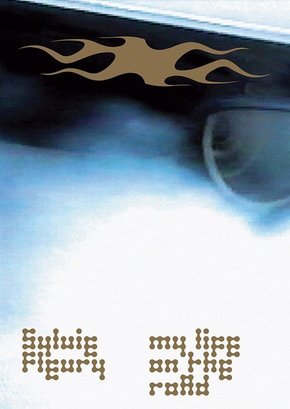Sylvie Fleury - My Life on the Road
| Verlag | Die Gestalten Verlag |
| Auflage | 2016 |
| Seiten | 192 |
| Format | 20,0 x 27,6 x 27,7 cm |
| Gewicht | 842 g |
| ISBN-10 | 395476167X |
| ISBN-13 | 9783954761678 |
| Bestell-Nr | 95476167A |
YES TO ALLSylvie Fleury (geb. 1961 in Genf, lebt und arbeitet in Genf) nimmt in ihren Arbeiten Bezug auf die Luxus- und Warenwelt und löst die Hierarchien zwischen Kunst, Kultur, Design, Mode und Kommerz auf. Als Assistentin des Künstlers John Armleder kam sie 1990 eher durch Zufall zur Kunst und hat seitdem die Objekte der Begierde aus Mode und Kosmetik als Skulpturen und Installationen präsentiert. Einkaufstüten bekannter Modefirmen werden im Ausstellungsraum ebenso auf dem Boden inszeniert wie zerbrochene Make-up-Produkte. Statussymbole und Fetische der Konsumwelt werden in den Kontext der Kunstwelt verschoben und damit in ihrem Wert hinterfragt. Im Sinne Duchamps sind ihre Objekte Readymades, die Andy Warhols Ansatz einer Kritik der Warenwelt zitieren. Neon-Schilder verkünden die Macht der Marke und machen das Logo zum Signum einer globalen Konsumwelt. Fleurys Werke bewegen sich zwischen Verführung und Oberflächlichkeit, Kunst und Werbung, Konzept und Konsum. Was auf den erste n Blick wie eine deutliche Bestätigung der Wertmaßstäbe der Konsumgesellschaft wirkt, ist doch immer ein subtiler Kommentar auf den schönen Schein.Mit Texten von Verena Hein und Maria Muhle, einem Gespräch zwischen Sylvie Fleury, Fredi Fischli und Niels Olsen sowie einem Vorwort von Michael Buhrs und Verena Hein.
YES TO ALLSylvie Fleury (b. Geneva, 1961; lives and works in Geneva) makes art in which references to the realms of luxury and commodities serve to dismantle the hierarchical distinctions between art, culture, design, fashion, and commerce. She got her start in the art world almost by chance when, in 1990, the artist John Armleder hired her as his assistant, and since then she has presented objects of desire from the domains of fashion and cosmetics as sculptures and installations. Arrangements on the floor of the exhibition space feature shopping bags emblazoned with the emblems of popular fashion houses as well as shattered makeup boxes. Status symbols and fetishes from the realm of consumer goods are displaced into the art context to call their value in question. As in Duchamp, the artist's objects are readymades, quoting Andy Warhol's approach to a critique of mass manufacturing. Neon signs proclaim the power of the brand and exalt the logo as the icon of global consumerism. T racing the fine line between seduction and superficiality, art and advertising, conception and consumption, Fleury's works may appear to embrace the values and standards of the consumerist society; look more closely, though, and they articulate a subtle critique of the semblance of beauty.With texts by Verna Hein and Maria Muhle, a conversation between Sylvie Fleury, Fredi Fischli and Niels Olsen as well as a preface by Michael Buhrs and Verena Hein.

